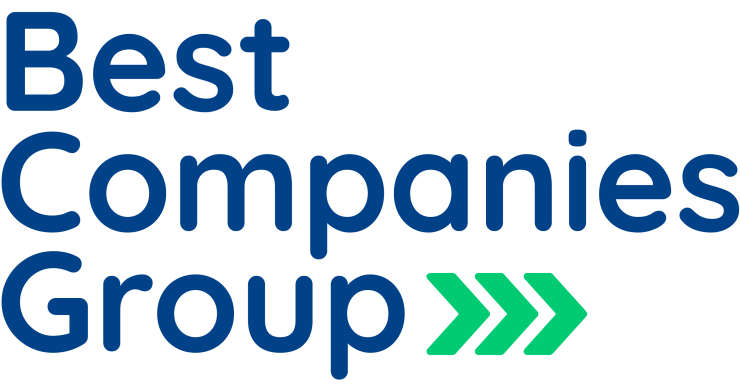Where does the line exist between employer and employee ethics? Is there one? Should there be? Those questions were posed by one of our readers, and consequently we’ve set out to better understand and then share our findings on the topic.
It’s true; there’s a ton of buzz and write-up on employer ethics and responsibility, but little mentioned on the importance of weaving an ethical code into the very fiber of your organization. The concept of ethics, itself, is a complex one. As Thomas Jefferson famously quoted, “On matters of style, swim with the current. On matters of principle, stand like a rock.” Often defined as a set of moral obligations that guide our decisions in many areas, ethics bleed over from our personal lives into our roles in the workplace. In its simplest form, ethics in the workplace can be outlined by a code of conduct or code of ethic. Such behavioral parameters may be drawn around actions such as:
- Use of company resources
- Accepting gifts
- Job completion
- Honesty
- Conflicts of interest
These issues arise in the news and affect major companies quite publicly. Sundar Pichai, chairman of Google, defended the ethical conduct of his corporation against complaints that Google employees were discriminating against conservative groups by replacing documents in politically sensitive searches. And corporate ethics matter to employees. According to a Bentley University study, 86% of millennials consider it a priority to work for a company that conducts itself ethically and responsibly.
To learn more, I interviewed several notable experts in the field of ethics, along with top executives from organizations who have a vested interest in and focus on professionalism and good ethics in the workplace. I wanted to find out several things. First: is there a difference between employee and employer ethics? And, second: what does a successful workplace system of ethic look like?
Meet the experts
 Dr. J. Thomas Whetstone III is a recognized authority on virtue ethics in business. Tom has experience in corporate management, the U.S. military, church ministry, university teaching, research and writing, and civic organizational leadership. He earned his B.S. at Washington and Lee University, a Master’s Degree in Management from the Sloan School at M.I.T, and a Master of Divinity and Master of Theology degree at Reformed Theological Seminary. To complete his academic credentials, he earned his Doctorate in Philosophy at the University of Oxford, England.
Dr. J. Thomas Whetstone III is a recognized authority on virtue ethics in business. Tom has experience in corporate management, the U.S. military, church ministry, university teaching, research and writing, and civic organizational leadership. He earned his B.S. at Washington and Lee University, a Master’s Degree in Management from the Sloan School at M.I.T, and a Master of Divinity and Master of Theology degree at Reformed Theological Seminary. To complete his academic credentials, he earned his Doctorate in Philosophy at the University of Oxford, England.
Tom has worked in corporate management positions for eleven years with two Fortune 500 diversified energy corporations. To date, Tom has written three books, three academic theses, six additional book chapters, seven academic course modules, and 43 journal articles.

 Greg Smith is president of Gulf & Basco, a leading supplier in Houston, Texas of home products. Gulf & Basco’s team of 60 employees, operating out of a 94,000 square foot facility near downtown Houston, has one goal: total customer satisfaction. And to that end, Greg and the company’s human resources manager, Bianca Somoza, are dedicated to making Gulf & Basco a corporate advocate of professionalism in the workplace at all times, by promoting a comprehensive and robust code of conduct.
Greg Smith is president of Gulf & Basco, a leading supplier in Houston, Texas of home products. Gulf & Basco’s team of 60 employees, operating out of a 94,000 square foot facility near downtown Houston, has one goal: total customer satisfaction. And to that end, Greg and the company’s human resources manager, Bianca Somoza, are dedicated to making Gulf & Basco a corporate advocate of professionalism in the workplace at all times, by promoting a comprehensive and robust code of conduct.
 Kristen Kellner, SHRM-SCP, is a seasoned human resources professional. Her unique background includes experience in training and development with additional expertise in the areas of customer service, training, leadership and organizational development, team effectiveness, group facilitation, and more. Now, chief learning officer for KMA Human Resources Consulting, Kristen helps to educate business leaders, reinforcing that clear employee ethics can have enormous power to positively impact business cultures who are willing to engage them.
Kristen Kellner, SHRM-SCP, is a seasoned human resources professional. Her unique background includes experience in training and development with additional expertise in the areas of customer service, training, leadership and organizational development, team effectiveness, group facilitation, and more. Now, chief learning officer for KMA Human Resources Consulting, Kristen helps to educate business leaders, reinforcing that clear employee ethics can have enormous power to positively impact business cultures who are willing to engage them.
Q: How are employer and employee ethics different?
Is there any separation of the ethical code expected of employers as compared to that of employees, or should both parties be held equally responsible? Our experts weighed in.
Q: How do ethics differ from a code of conduct?
Dr. Whetstone says that one of the keys to making a code of ethics a reality, is that it must first exist and be demonstrated by top executives then down through the ranks of employees. Special privileges shouldn’t be allowed for certain titles. Long lunches, expense accounts, using the telephone for personal use — if it’s not applied uniformly throughout the culture, the expectation won’t mean anything. One glaring exception undermines the entire process. He also advocates for action-based ethics. When considering a business move or purchase decision, the board or executive team should stop and consider their code of conduct before making decisions.
Are the values agreed to? Are they part of the culture? You can’t simply say it, you have to make decisions that are in alignment with ethical expectation. From top down and bottom up, responsibility is placed on leadership to know their people. It is the duty of the captain to go down with the ship, for example.
Another interesting topic Dr. Whetstone mentioned is what he calls attribution theory: we tend to attribute the positives of our organization to ourselves, and the negatives to others. This poses a fundamental problem in creating a culture of accountability and teamwork. But, when approached in a different light, it makes it easier to behave ethically in your organization when the rest of the group adopts that same code. You might say it either makes it easy to cheat or hard to cheat.
In one anecdote, a grocery chain owner had strong, but simple ethical convictions — three convictions, to be exact. The owner would bring these simple rules up when he addressed the organization and in individual discussions with customers and employees, as well as during executive meetings. One executive said he was actually sick of hearing them! The end result, however, was that these ethics and the subsequent priorities of the organization were known. Everyone knew the owner’s values, and most believed he truly lived it.
Take advantage of critical points in employee experience that serve as a reminder of the ethics and values of your organization. Some learning checkpoints for your employees include:
- Orientation
- Leadership training
- Discipline
- Rewards Systems
Q: Have you ever been part of an initiative to strengthen employee ethics?
You’ve arrived at the conclusion that the establishment of organizational ethics is a worthwhile pursuit, but there isn’t one prescriptive program available to tackle and achieve the results you’re hoping for. Here’s how our expert panel suggests you approach an ethics initiative:
“I believe a good ethics system should move the people to actually improve themselves in their morale character. There should be an objective: and that should be to improve. Not to be perfect, but to improve,” says Dr. Thomas Whetstone.
Q: How do you communicate these guidelines to your employees?
Like any other company-wide initiative, clear communication is critical to the success of an ethics initiative. Here’s how our experts communicate ethics guidelines to their staff:
“First we communicate these guidelines through periodic employee evaluations and online training. The employer initially gives a company handbook to all employees during the on boarding process which clearly states the company guidelines,” shares HR Manager Bianca Somoza, Gulf & Basco.
“Communicating ethics and core values takes on many forms. They are modeled through our daily interactions with one another. They are part of our feedback-loop processes and we use them to recognize our success as a team,” offers Chief Learning Officer Kristen Kellner, KMA Human Resources.
Q: How do you think employee ethics impact your organization?
What are the benefits of investing in employee ethics? Those who have done so see a strong correlation between ethics and performance.
“It has everything to do with the overall performance of any company from its cultural health to its financial health,” says President Greg Smith, Gulf & Basco.
“Employee ethics provide a template for how employees should behave, act, and conduct themselves at the workplace. Employees are made well aware of how they should behave professionally at all times. This creates an environment of professionalism at the workplace which is beneficial to everyone at the company,” shares HR Manager Bianca Somoza, Gulf & Basco.
Q: Are codes of conduct really about protecting an employer from liability when an employee behaves inappropriately?
We hear this occasionally and wanted to understand how ethics codes can go beyond employer protection.
“Codes of conduct flow from values and ethics, and they may detail acceptable or prohibited conduct and/or workplace behaviors. These are highly important because they clarify and communicate to employees what is expected to create a healthy, safe, respectful and productive workplace. A shared understanding of values, ethics and conduct is key. While codes of conduct may be utilized in managing employee performance issues, the heart of having employer ethics, values and conduct standards is to protect all of an organization’s stakeholders,” offers reports Chief Learning Officer Kristen Kellner, KMA Human Resources.
When you consider cultural shifts for your organization and employees, remember to include ethics. Azim Premji, chairman of Wipro, dubbed by the Ethisphere Institute as the “World’s Most Ethical Company” in 2015 said, “The real threat to business is from within, from poor ethical standards and lack of integrity that can do incalculable harm. History has proven repeatedly that business ethics, shared value, and corporate governance determine the longevity of an enterprise. What is required is ‘capacity building’ towards deeper ethical behavior. Employees must know compliance is not a tick-box activity and they ought to witness their organisations transcend compliance and infuse ethical practices into everyday action. They need to be empowered to thwart unethical action at work and appreciate the fact that business integrity is directly related to the future of the company, their families, and that it securitises their livelihoods.”
Thank you to our gracious contributors, Tom, Greg, Bianca, and Kristen. And to our readers, whose curiosity and suggestions push us to learn more about the expansive field of employee engagement and organization development.

